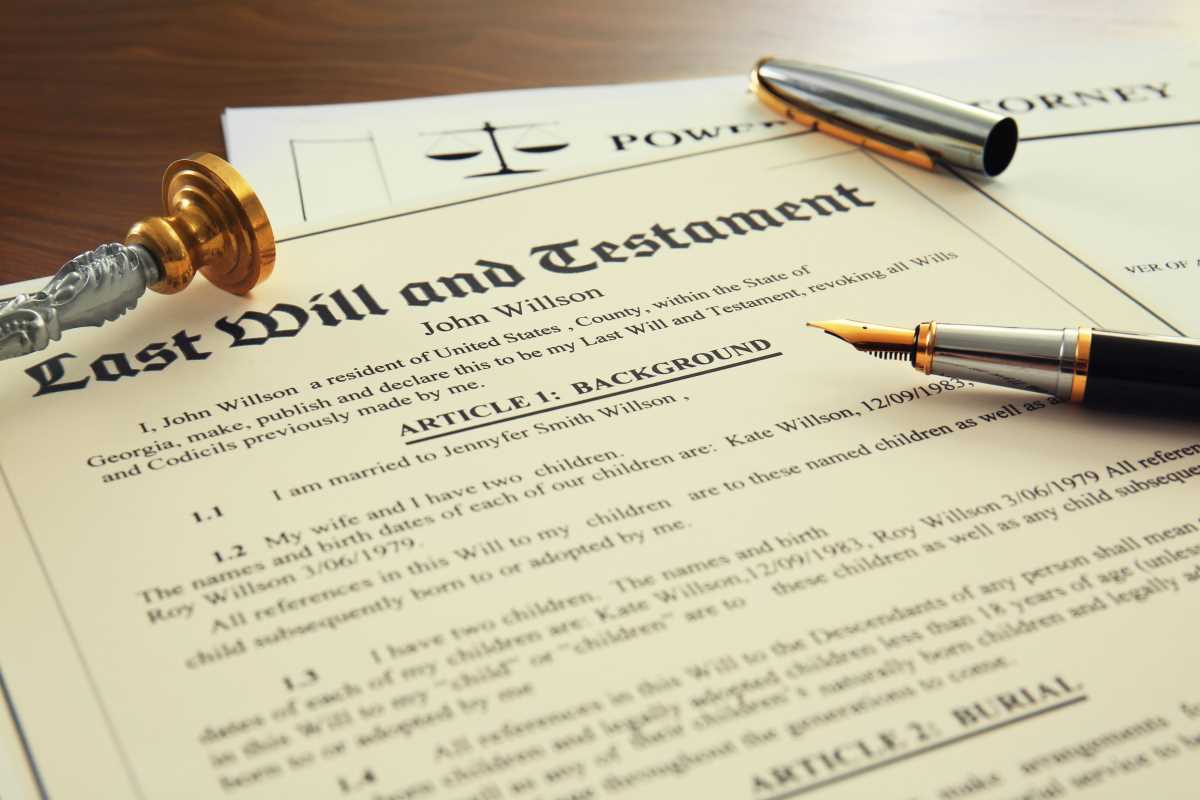Losing a loved one is never easy, and the process of settling their affairs can be emotionally draining. When disputes arise over a will, it can make an already difficult time even more challenging. Contesting a will is a legal process that questions the validity or fairness of a deceased person’s final wishes. Understanding the steps and intricacies involved can help you decide if contesting a will is the right choice and how to proceed effectively. These are the key factors, legal grounds, and practical steps to contesting a relative’s will, empowering you to make informed decisions during this tough time.
Understanding Grounds for Contesting a Will
Not all disagreements over a will can lead to a legal contest. Specific grounds must exist to challenge its validity. These are the most common reasons:
Lack of Valid Execution
A will must comply with specific legal requirements to be valid. Most states require the document to be in writing, signed by the testator (the person who made the will), and witnessed by at least two people. The will might be invalid if any of these steps are missing or incorrect.
Lack of Mental Capacity
For a will to hold up in court, the testator must have been of sound mind when creating it. This means they understood the nature of the document, the extent of their assets, and the implications of distributing those assets among beneficiaries. Evidence of mental illness, dementia, or other impairments at the time can form the basis of a challenge.
Undue Influence or Fraud
A contest may arise if someone pressures or manipulates the testator into making decisions that unfairly favor them. Similarly, fraudulent behavior, such as altering a will or forging a signature, can invalidate the document.
Presence of Multiple Wills
If there are conflicting versions of a will, the most recent one that meets legal standards is generally considered valid. However, questions about the legitimacy of newer versions can lead to a contest, especially if they were created under questionable circumstances.
Disinheritance Without Explanation
While disinheritance isn’t illegal, leaving close family members out of a will without clarification can raise red flags. Courts may consider whether the exclusion was intentional or resulted from improper influence.
Who Can Contest a Will?
Only individuals who have "standing" can contest a will. This means you must have a direct financial or personal interest in the case's outcome. Common contenders include:
- Beneficiaries named in the will who feel unfairly treated
- Heirs who would inherit under the state's intestacy laws (applicable if no will existed)
- Creditors with outstanding claims against the estate
To determine your legal standing, consult with an attorney specializing in probate or estate law. They can evaluate your situation and clarify whether you qualify to proceed.
The Contesting Process Step-by-Step
Adhering to the proper process is essential once you decide to challenge a relative’s will. Probate court oversees these disputes, and the process varies slightly by location. Below is a general outline of the steps involved:
Step 1: File a Petition
To begin, you must file a formal petition with the probate court. This document states your intent to contest the will and outlines your grounds for the challenge. Be prepared to provide a clear explanation supported by facts and evidence.
Step 2: Notify All Interested Parties
All beneficiaries, heirs, and relevant parties must be informed of the contest. The probate court will typically require proof of notification, preventing anyone from being excluded from the legal proceedings.
Step 3: Gather and Submit Evidence
The burden of proof lies with the person contesting the will. Evidence may include medical records proving mental incapacity, witness testimony about undue influence, or documentation highlighting procedural errors. Collecting this evidence builds a strong case.
Step 4: Mediation or Settlement Discussions
Many disputes are resolved outside of court. Mediation offers a less adversarial way to reach an agreement and avoid lengthy legal battles. During mediation, you and other parties negotiate a resolution with a neutral third party.
Step 5: Attend Court Proceedings
If mediation fails, the case will proceed to a formal court hearing. Both sides will present their arguments, call witnesses, and submit evidence for the judge to review. The judge will ultimately decide whether the will is valid or should be overturned.
Costs and Challenges
Contesting a will can be time-consuming and expensive. Legal fees, court costs, and the need for expert witnesses (such as forensic handwriting analysts or mental health professionals) add up quickly. Consider discussing fee structures with your attorney, as some work on a contingency basis, taking a percentage of the inheritance if successful.
These cases can be emotionally draining on families. Disputes over a loved one’s last wishes can fuel tension between relatives. It’s crucial to carefully weigh the potential emotional and financial costs before proceeding.
Legal Support and Resources
Navigating the complexities of contesting a will requires professional guidance. An attorney can review the facts of your case, help you decide whether to move forward, and represent you during court or mediation. For those without the resources to hire private counsel, organizations like LawHelp.org can connect you with free or low-cost legal aid in your area.
Understanding local laws is also key, as each state has unique probate rules and timelines. Missing deadlines is one of the most common reasons contests fail, so ensuring adherence to relevant legal requirements is essential.
Preventative Steps for Future Wills
You can't change the past, but addressing vulnerabilities in estate planning can prevent similar disputes in the future. Encourage loved ones to seek legal advice when drafting a will. Emerging tools like video recordings of the testator explaining their intentions can also shield against claims of undue influence or mental incapacity.
Using a professional estate attorney reduces errors. Safeguarding against fraudulent claims requires careful screening of witnesses and executors and secure storage of original documents in law firms, safety deposit boxes, or other trusted locations.
Is Contesting a Will the Right Choice?
Pursuing a will contest is not a decision to be made lightly. This option is often the last resort for individuals who believe their loved one’s final wishes were altered or unjustly influenced. Success depends on showing clear legal grounds and providing compelling evidence. Consulting with professionals, staying informed, and understanding the personal impact will all play a role in helping you move forward wisely.
This general information does not constitute legal or financial advice. Please consult a qualified professional for advice tailored to your specific situation.
 (Image via
(Image via





